If this isn’t a difficult Gospel passage to understand, I don’t think there is one! What are we to make of such a convoluted story? Surely we are not supposed to think that the king is God, are we? I mean, why would Scripture portray God in such a terrible manner? Do we want to believe in a God who would seemingly-arbitrarily destroy a whole city because people wouldn’t come to a banquet, and then throw someone out of the banquet who did come, because he wasn’t appropriately dressed? These are good questions, and when we have so many urgent, nagging questions, we know that the Gospel is trying to teach us something. So let’s get at it.
First of all, it’s important to know that this parable isn’t intended to be taken literally, of course. We don’t want to draw a direct analogy here. Don’t read it as saying, “If you don’t behave, God is going to put you to an ugly death, burn your city, and leave you to the place where there will be wailing and grinding of teeth.” Obviously, Jesus is using hyperbole here – he likes to employ literary devices to get our attention, and that’s exactly what it happening. So even though we shouldn’t draw a direct analogy, we should sit up and take notice – that’s the whole point.
Let’s imagine the story happening in our day. Suppose you were to receive an invitation from the President of the United States to attend the wedding of one of his children. Regardless of how you may feel about the President, you’re probably somewhat unlikely to turn down the invitation. You might have respect for the office, or a curiosity of how opulent an affair this would be, and you’re unlikely to get a better dinner offer. Well that’s how the people in the story should have reacted to the invitation from the king, but they didn’t. Instead they found all sorts of lame excuses, and some of them even went so far as to murder the messengers!
Jesus is speaking rather directly to the Jews, and especially to their leaders. He is saying that they were the first to be invited. But they had all sorts of excuses for not showing up to the banquet. They couldn’t be bothered to turn away from the distractions of their lives to accept the invitation that was theirs by right. Not only that, but along the way, some of them went so far as to murder the prophets who were the messengers of the invitation, so that they wouldn’t have to bear their reproach. There could be no bigger affront to our King than to turn away so completely. Therefore, Jesus says, the invitation goes out to all the world.
So what is this all about for us, then? Well, here’s the message. The marriage that is intended is the marriage of God to the world. He longs for us to become one flesh with him, so that we can inherit the eternity of grace for which we were created. And the banquet is, of course, the Eucharist, which celebrates that marriage and nourishes us to live the Gospel and carry the Cross and make our way to heaven, our true home. That is the feast of rich food and choice wines that we hear of in today’s first reading. That invitation has been put out to all of us, wandering along wherever we might be on our life’s journey, and we have been told that the feast is ready for all of us, bad and good alike. It means that no matter how far we have wandered, if we accept the invitation, we can join the banquet.
But at that glorious banquet, only certain attire is suitable. That’s the whole meaning of the man who got bounced out of the banquet because he didn’t have on a wedding garment. That garment, friends, is a genuine and rich relationship with God. That wedding garment is a committed acceptance of relationship with Christ. That wedding garment is firm purpose of amendment for our sins. That wedding garment is a real acceptance of grace and allowing it to work in our lives. We can’t be putting on the ugliness of the world: sin and immorality and self-concern. If we love our sins more than we love our Jesus, we will be allowed to let that be our eternity, with all its wailing and grinding of teeth. God forbid!
Instead, we must clothe ourselves with the wedding garment that is Christ Jesus. None of our own garments are going to get us to heaven, but only the beauty of our Lord Jesus Christ, whose urgent desire is to make us one with our God. We all know very well that it would have been just for our God to leave us off the invitation list entirely, distracted from him as we are, loving our sins as we do, unwilling to repent as we are sometimes. But our God will do no such thing: instead he clothes us in our Lord at our Baptism, gives us feast of rich food and choice wines in the Eucharist, and invites us to become one with him in a wedding covenant that takes us to our eternal home. Why on earth would we ever refuse that invitation? How could we ever show up unadorned with the beauty of Christ?
And so in preparation for today’s Eucharist, maybe we can take some time in the offering to accept the invitation of our Lord and to put on Christ Jesus so that we might worthily partake of the Banquet. Let’s pray with that right now. Close your eyes and pray with me in your heart.
Loving God, we are so grateful that, despite our unworthiness and our unloveliness, you still have called us to your wedding banquet. There is no way we could ever be deserving of such great love, but you freely offer it anyway, because you are love itself. We are grateful that you desire to be wed with us and the world so that we can be forever with you. The banquet feast of heaven is where we want to go, to spend eternity, and to live in you. We confess that, sometimes, we have cast off our wedding garment, that garment of relationship with you that we received in Holy Baptism, in favor of putting on the filthy rags of this world. We confess that, more often than we can bear to acknowledge, we have treasured our sins more than we have treasured your invitation. We pray that you would not cast us out in the darkness, but instead that you would keep us in the light of your presence. We pray that you would, by your ever-present grace and through your unfailing mercy, help us to don that perfect garment that is our relationship with you, and forever to cast aside our sins and the tattered ugliness of the world. Forbid in your mercy that we would ever have to wail and grind our teeth in the darkness, and bring us back to perfect union with you in the bright glory of your kingdom. For yours is the kingdom, and the power, and the glory, for ever and ever. Amen.
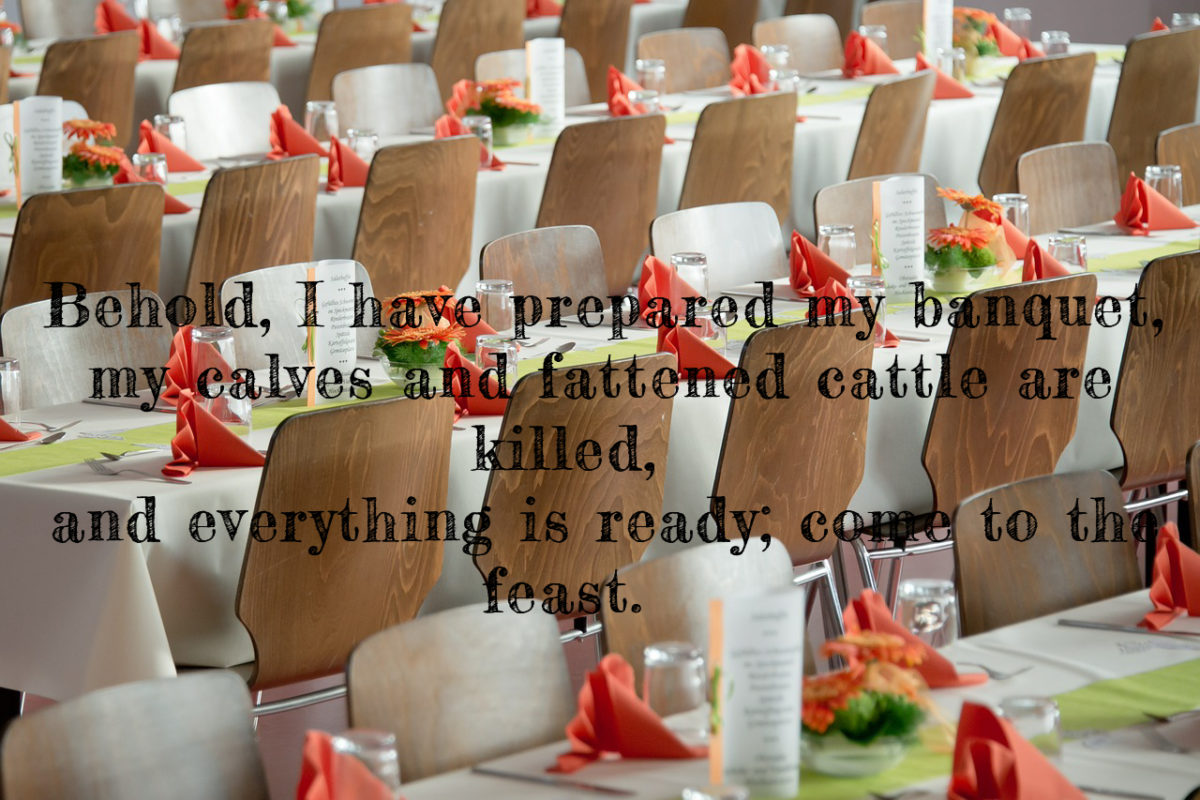
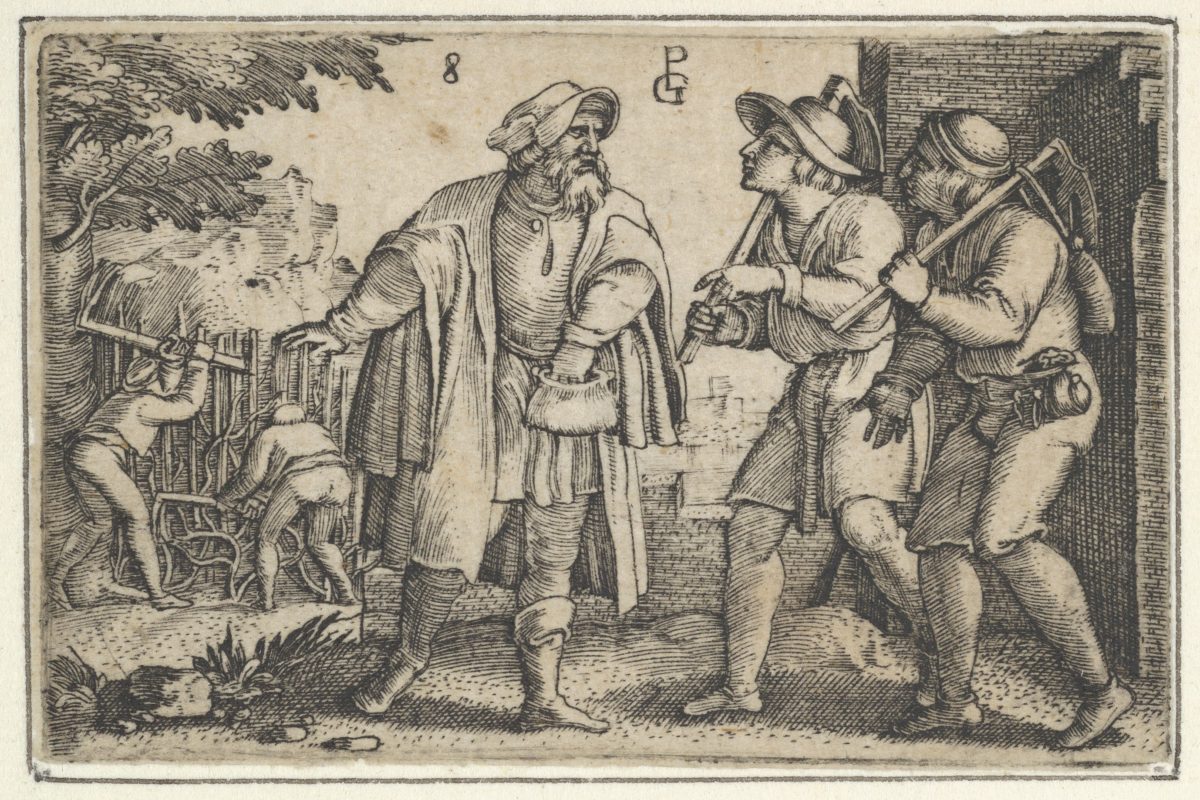


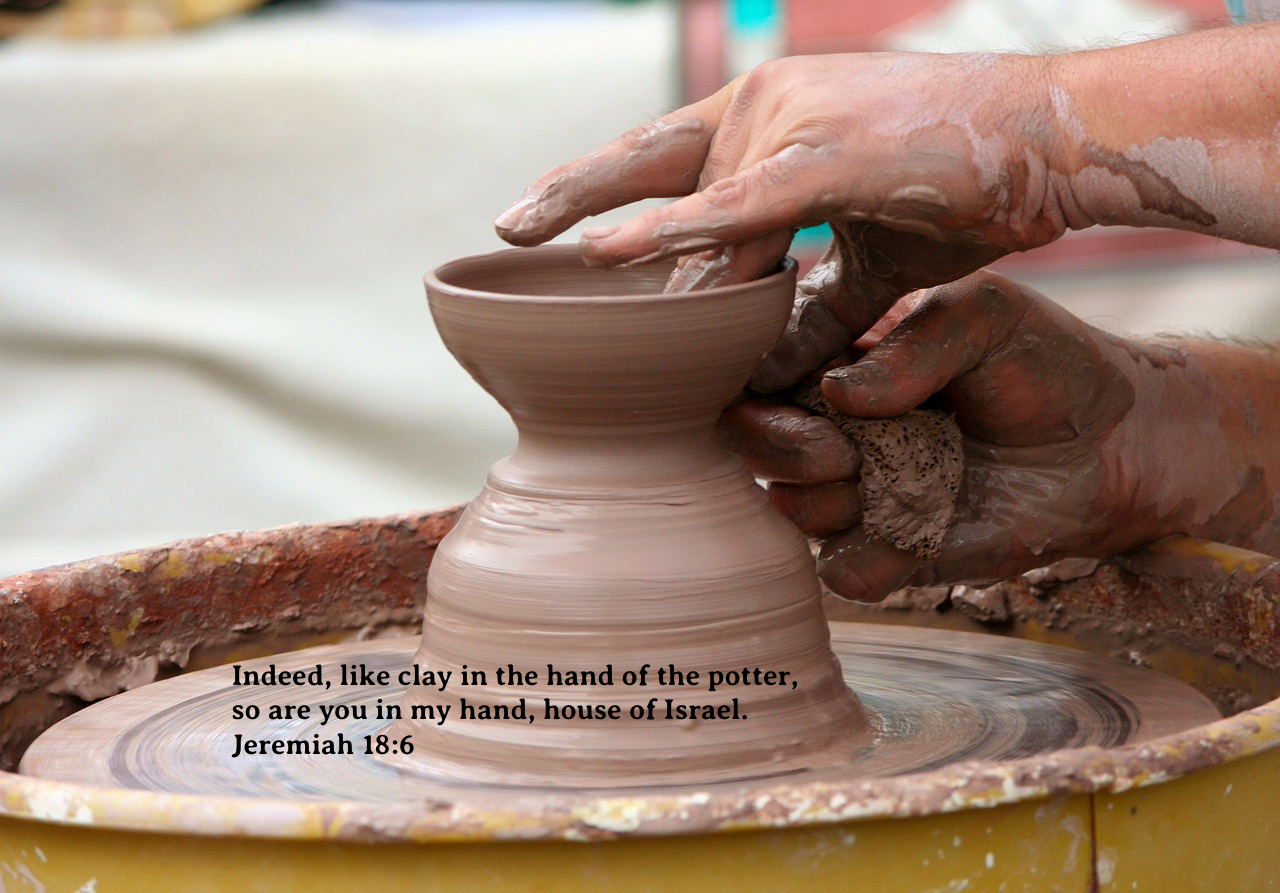
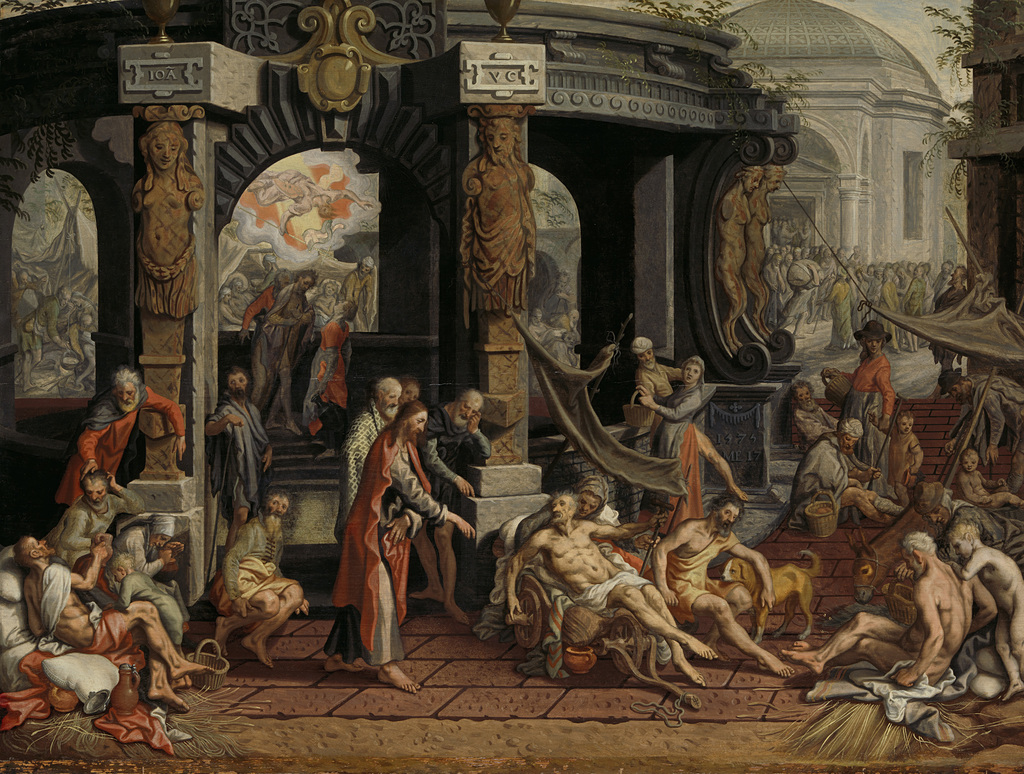
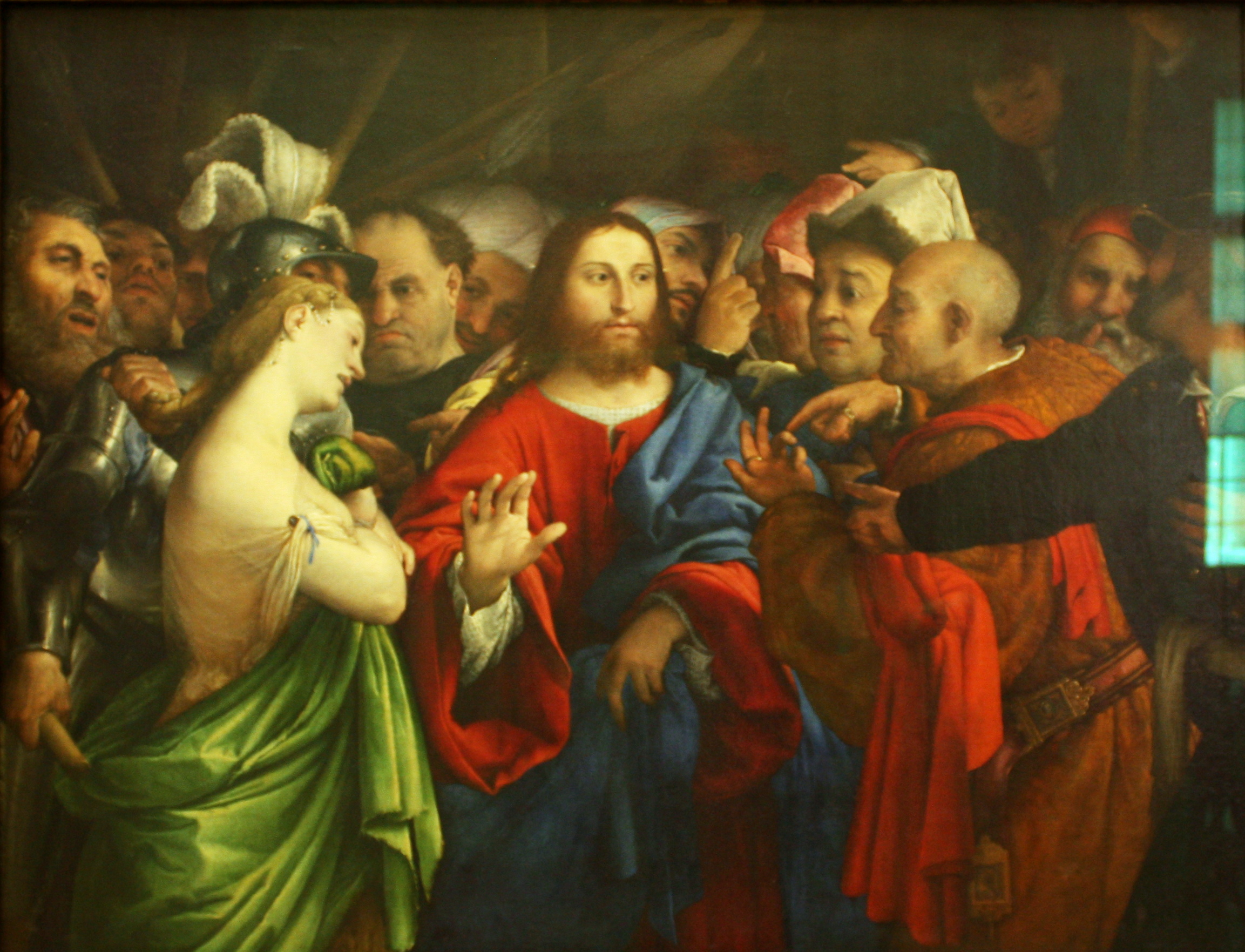

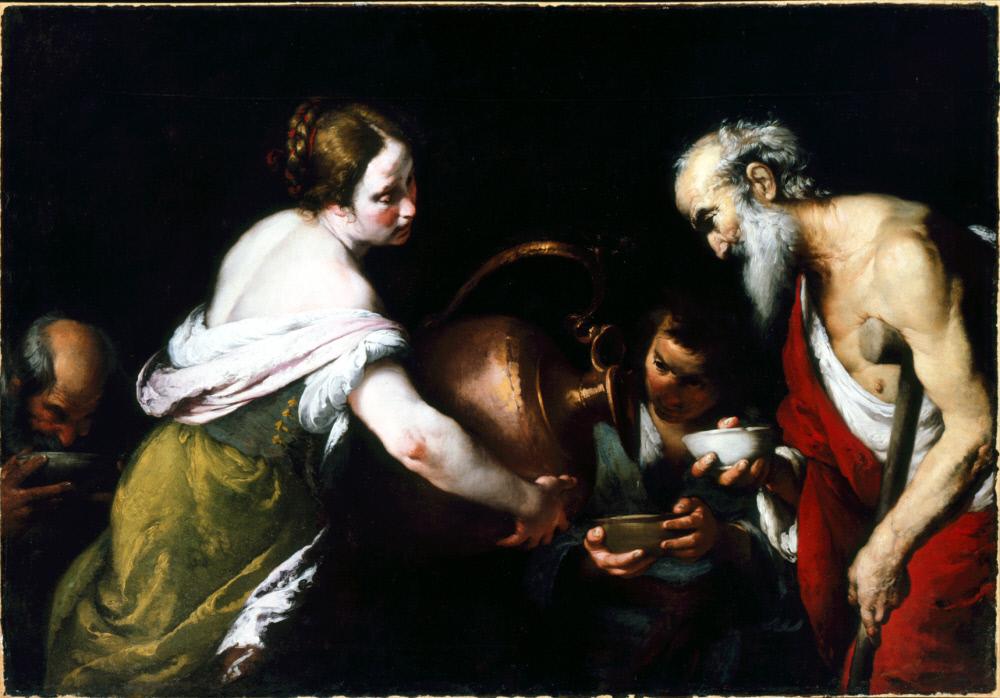
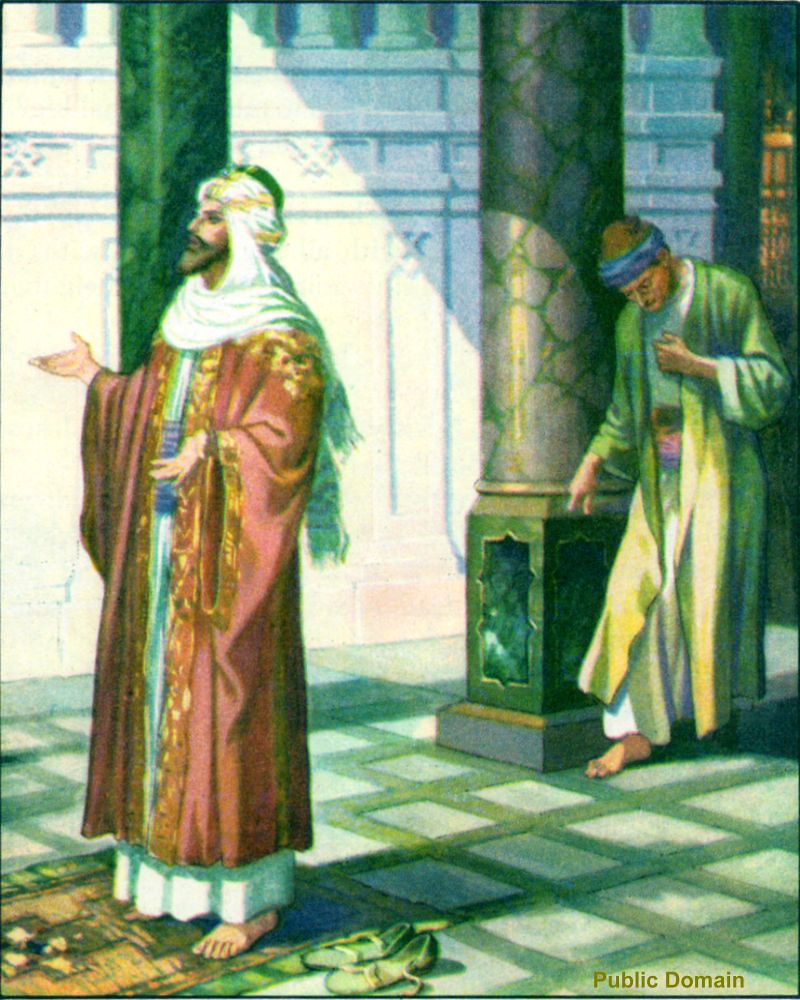
You must be logged in to post a comment.